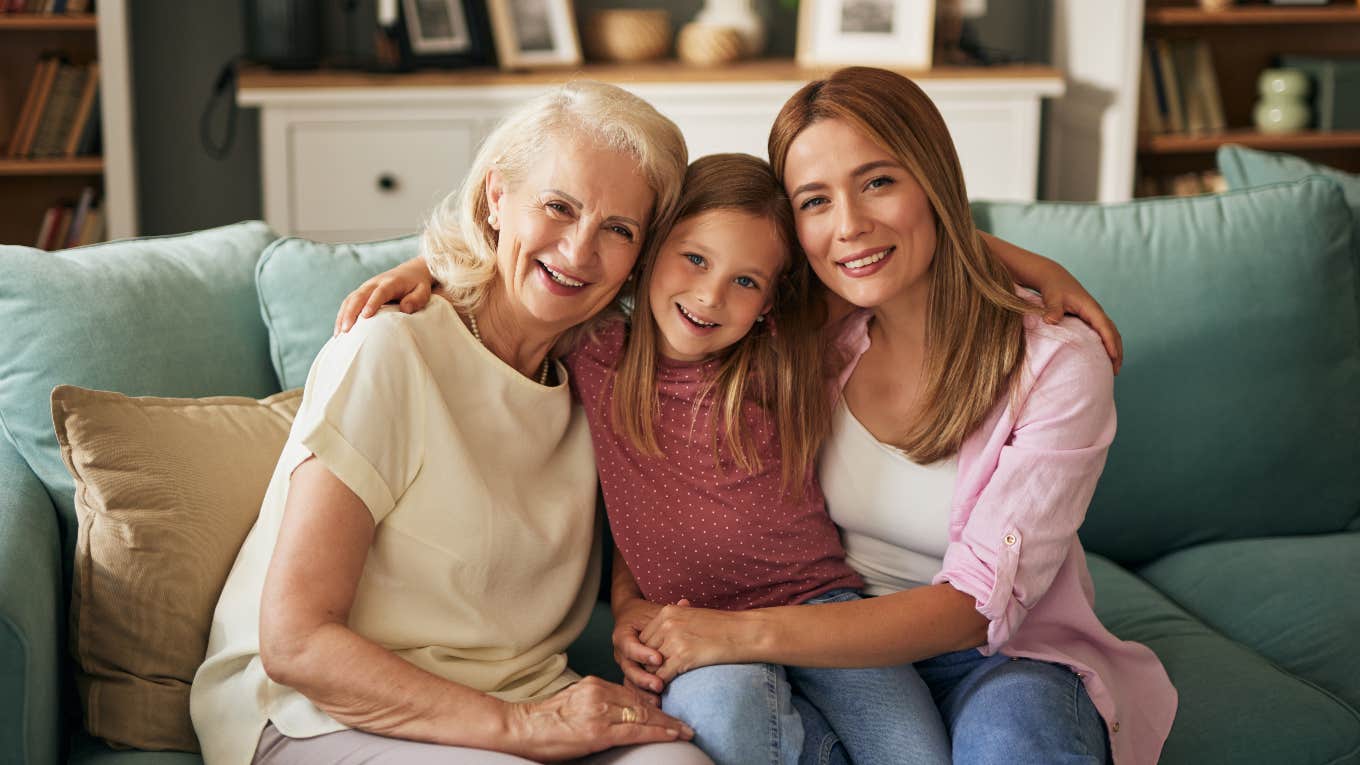Grandma Says All Grandparents Should Ask Themselves These 3 Questions Before Giving Parenting Advice To Their Adult Children
"Often, the best way to help parents is to let them figure it out on their own."
 StockPhotoDirectors | Shutterstock
StockPhotoDirectors | Shutterstock As a grandparent, it can be tempting to offer parenting advice to your children. After all, you have experience as a parent and a wealth of knowledge to share. However, advice doesn't always go over well, especially when it is unsolicited.
DeeDee Moore is a grandmother, mom of four, and founder of More Than Grand, a blog offering advice to new grandparents. In a recent TikTok, she shared a few questions grandparents should ask themselves before dispensing their wisdom to their adult children. "Knowing when and how to give advice can transform your relationship with your adult children and help you become the supportive grandparent they need," she stressed.
Here are 3 questions grandparents should ask themselves before giving parenting advice to their adult children:
1. Was I asked for this input?
When a parent is stressed, unwanted advice may come across as though you are questioning their capabilities or insisting that you know better than they do. "If parents haven't specifically asked for your opinion, they may not be open to receiving it, no matter how valuable you think it is," Moore explained.
Grandparents also tend to forget just how much access to information the parents of today have. From parenting books and blogs to YouTube channels and TikTok accounts, they are constantly inundated with information.
"It can be impossible for grandparents to understand how much information is coming at parents today — it’s immense,” Moore told TODAY.com. "When we raised our children, we had very few sources of information aside from our pediatricians, a few books, and our moms — that’s who we went to for advice and support." That's simply not the case any longer.
2. Is this about safety or preference?
If your child is improperly buckling your grandchild's car seat or not using safe sleep practices, by all means, step in. But if you don't like their chosen name or disapprove of their gentle parenting style, keep your thoughts to yourself.
"Safety concerns might warrant speaking up, but preferences, like how they dress the baby or which foods they introduce first, are their domain," Moore stressed.
3. What's my real motivation?
"Be honest with yourself. Are you trying to be helpful, or are you trying to show your expertise, or even assert control?" Moore asked. Only the former is acceptable. And even when your advice is well-intentioned, often there are better ways to help your children navigate parenthood.
"Parents today don't need more advice. They're already drowning in information from books, websites, and social media. They don't need criticism of their choices or comparisons to how things were done back in our day," Moore explained in another video. "What they really need is your support, your encouragement when they're exhausted, your understanding when they choose approaches different from what you did."
"They need someone who respects their boundaries and asks how to help, instead of assuming," she continued. "They need a grandparent who validates their journey rather than questioning it."
Audrey Jaber is a writer and associate editor with a bachelor's degree in journalism.

